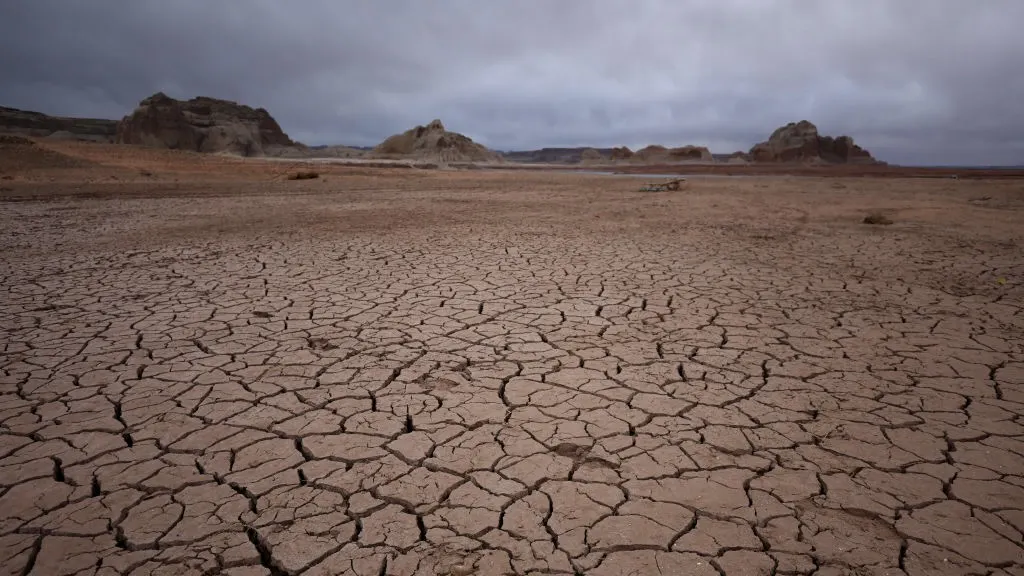The federal government is making cuts to water from the Colorado River as an ongoing drought continues to bring the river down to drastic lows.
The Biden administration’s Bureau of Reclamation announced Tuesday that the Lower Colorado River Basin has come to a “Tier 2” shortage for the first time ever, and the agency is inflicting a cutdown in water usage that will decrease the amount Arizona, Nevada, and Mexico receive. Arizona will get 21% less water, Nevada will get 8% less, and Mexico will receive 7% less. The reductions won’t “result in any immediate new restrictions,” AP reports.
With the new Tier 2 designation, Arizona will be requested to cut down on use next year by another 592,000 acre-feet, Nevada by 25,000 acre-feet, and Mexico by 104,000 acre-feet of water. The Tier 2 will take effect in January.
There are seven states that use the Colorado River as a water source. The bureau had set a deadline for those states in June to come to a voluntary deal on how to cut down water usage by two million to four million acre-feet, but they did not come to an agreement as the deadline passed on Monday. Hence, the Tier 2 designation.
“Every sector in every state has a responsibility to ensure that water is used with maximum efficiency. In order to avoid a catastrophic collapse of the Colorado River System and a future of uncertainty and conflict, water use in the Basin must be reduced,” Tanya Trujillo, assistant secretary for water and science at the Department of the Interior, reportedly said in a statement.
A historic drought in the western states has continued to impact agriculture and water availability.
Lake Mead and Lake Powell are the river’s two primary reservoirs, and their levels are anticipated to keep plummeting.
“What we’re facing here is that continued drawdown at Powell and Mead starts to affect people’s physical ability to get water,” Deven Upadhyay, assistant general manager and chief operating officer of the Metropolitan Water District of Southern California, said. The Metropolitan Water District of Southern California gets one-fourth of its water resources from the Colorado River.
“It’s not like we can argue over this forever, and then the reservoir goes dry and you don’t have access to water, and at that point you’re not negotiating anything,” he said. “That is a powerful driver that is very different about these discussions now.”
The Department of the Interior is now projecting that Lake Mead’s water levels will be under 1,050 feet above sea level by January, which is the level necessary to issue a Tier 2 shortage beginning next year.
There are specific amounts available for Upper Basin states — which include Colorado, Wyoming, Utah, and New Mexico, and states in the Lower Basin — including California, Nevada, and Arizona.
Colorado authorities have noted they want the Lower Basin to act more, but the Arizona Department of Water Resources Director Tom Buschatzke said Tuesday it was “unacceptable” that Arizona has to “continue to carry a disproportionate burden of reductions for the benefit of others who have not contributed.”
Last year, officials announced a Tier 1 shortage on the Colorado River. A Tier 1 level shortage was expected last year, and it was delayed as states agreed to reduce their water usage.

.png)
.png)

